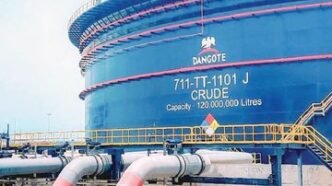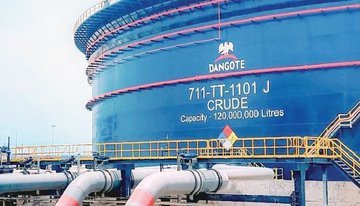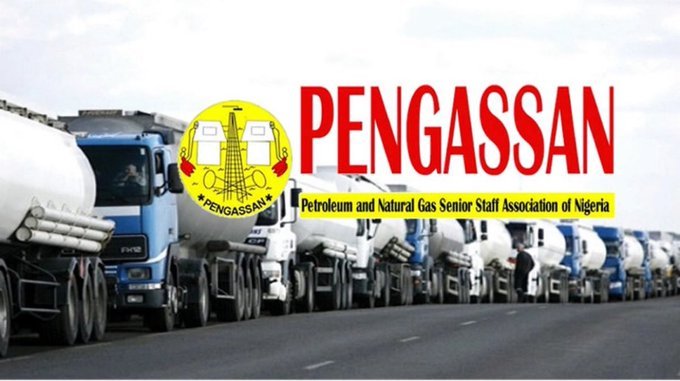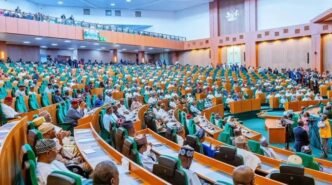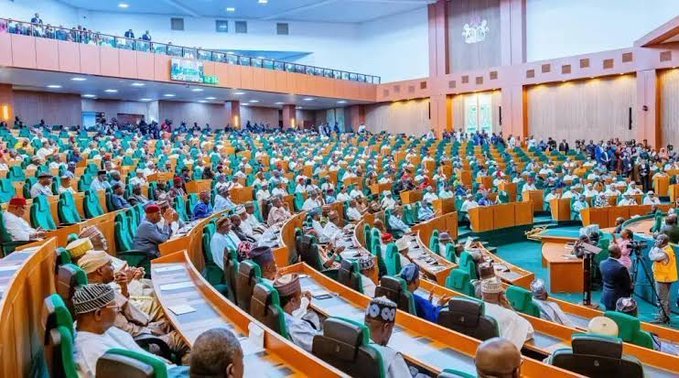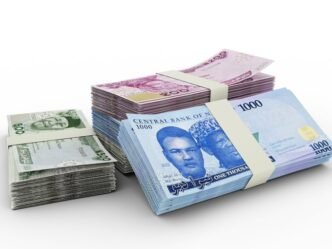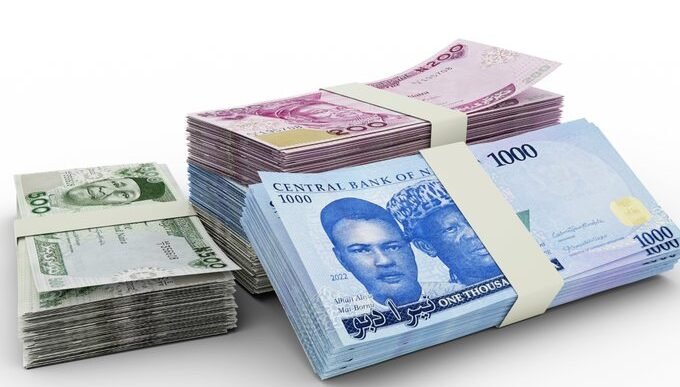JUST IN: Following the intervention of the Federal Government’s Naira for Crude Technical Committee, the Dangote Petroleum Refinery has announced that it will resume the sale of Premium Motor Spirit (PMS), popularly known as petrol, in Naira. This development comes just days after the refinery suspended transactions in the local currency, a decision that had sparked heated debates across Nigeria’s economic and energy sectors.
Federal Government’s Intervention
The Naira for Crude Technical Committee, established by the Federal Government to ensure that crude oil transactions and downstream petroleum product sales remain tied to the local currency, stepped in to resolve what could have escalated into a major crisis. The committee engaged both the Nigerian National Petroleum Company Limited (NNPCL) and the management of the Dangote Refinery in extensive discussions.
According to sources within the Ministry of Petroleum Resources, the intervention was deemed crucial to protect the stability of the Naira and to prevent potential disruptions in the supply of refined petroleum products to the domestic market.
“The Federal Government recognizes the importance of Dangote Refinery in meeting Nigeria’s fuel demand. At the same time, we cannot allow a situation where strategic national assets or resources are denominated exclusively in foreign currency. This intervention was necessary to restore confidence,” a senior official who is familiar with the negotiations explained.
Background to the Suspension
The Dangote Refinery, Africa’s largest single-train refinery, had earlier announced that it would stop selling petrol in Naira starting from September 28, 2025. The management cited challenges with crude oil procurement, forex volatility, and the need to align with international market realities as reasons for the policy shift.
However, this decision triggered widespread concern. Analysts, labour unions, and market stakeholders warned that denominating petrol sales in dollars could deepen Nigeria’s cost-of-living crisis. Given that NNPCL sells crude oil to the refinery in Naira, critics argued that there was no justification for the refinery to turn around and sell refined products exclusively in dollars.
The move also sparked fears of inflationary pressure, as petrol remains central to Nigeria’s economy, powering vehicles, industries, and small businesses.
The Compromise Deal
With the new agreement brokered by the Naira for Crude Technical Committee, Dangote Refinery has now committed to resume selling petrol in Naira while also creating a dual-window arrangement for international buyers. This means that while Nigerian marketers and consumers will continue to access PMS in the local currency, foreign traders or regional importers will have the option of transacting in dollars or other convertible currencies.
This compromise is expected to strike a balance between protecting domestic economic interests and positioning the refinery as a competitive player in the international oil market.
Why This Matters for the Economy
The resumption of petrol sales in Naira is a significant relief for both the government and ordinary Nigerians. For the government, it strengthens the Naira and reduces the risk of further depreciation in the parallel forex market. For businesses and households, it provides stability in fuel pricing and averts the likelihood of sudden hikes that could have pushed inflation further beyond its current levels.
Nigeria is already grappling with double-digit inflation, food insecurity, and foreign exchange challenges. Economists have warned that any additional pressure from petrol pricing could worsen the situation. By ensuring continued sales in Naira, the Federal Government has effectively prevented what many feared could have been a tipping point for economic instability.
Industry Reactions
The announcement has been met with cautious optimism across the energy sector. Independent petroleum marketers hailed the decision as a victory for the Nigerian people.
“The earlier decision to suspend Naira sales was anti-people and against national interest. We commend the Federal Government for this timely intervention. Dangote Refinery is a critical asset, but it must operate in line with Nigeria’s economic realities,” said Abubakar Maigandi, President of the Independent Petroleum Marketers Association of Nigeria (IPMAN).
Labour unions have also expressed satisfaction with the outcome. The Petroleum and Natural Gas Senior Staff Association of Nigeria (PENGASSAN), which has been engaged in separate disputes with the refinery, noted that the resumption of Naira transactions is consistent with Nigeria’s sovereignty.
However, some industry experts caution that while the decision is commendable, it does not resolve the structural challenges of Nigeria’s petroleum sector. “This is a temporary relief, but the real issue lies in crude oil supply arrangements, forex liquidity, and refining efficiency. These matters must still be addressed if Nigeria is to achieve long-term energy security,” an oil sector analyst, Dr. Mabel Okechukwu, remarked.
Dangote Refinery’s Strategic Role
Commissioned in 2023 and designed to process 650,000 barrels of crude oil per day, the Dangote Refinery has been described as a game-changer for Nigeria’s energy landscape. It has the potential to meet not only domestic demand but also to export refined products across Africa.
Its strategic role makes it a sensitive player in Nigeria’s economic matrix. Any policy shifts, such as the suspension of Naira sales, have immediate and far-reaching consequences.
By resuming sales in Naira, the refinery is now reaffirming its commitment to national development goals while balancing its commercial interests.
Political Implications
The Federal Government’s swift intervention also carries political weight. With mounting pressure on President Bola Tinubu’s administration to stabilize the economy, the move to safeguard Naira-denominated transactions underscores the government’s determination to defend the local currency.
It is also likely to ease public criticism, particularly from labour groups and opposition figures, who had described Dangote Refinery’s initial decision as a betrayal of national interest.
Looking Ahead
While the immediate crisis has been averted, analysts stress that Nigeria must go beyond fire-brigade interventions. The need to strengthen domestic crude oil supply, stabilize forex markets, and provide regulatory clarity remains urgent.
For Dangote Refinery, the challenge will be to maintain profitability and competitiveness while aligning with government policy. The dual-window arrangement offers flexibility, but sustained cooperation with NNPCL and other stakeholders will be key.
Conclusion
The Federal Government’s Naira for Crude Technical Committee has successfully negotiated a truce that restores stability to Nigeria’s petroleum sector. With Dangote Refinery resuming petrol sales in Naira, Nigerians can breathe a sigh of relief, at least for now.
The development underscores a larger reality: as Africa’s biggest economy navigates its energy and economic challenges, strategic collaboration between government and private investors remains the only path forward.
For millions of Nigerians who depend on petrol for their daily lives and livelihoods, the message is clear — the Naira remains central to the nation’s survival.

